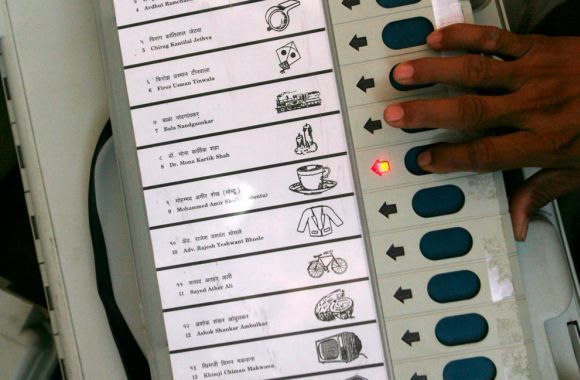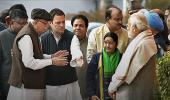 Gujarat voters have emerged to be twice as likely to reject all candidates in the fray, compared to their counterparts in Himachal Pradesh, with over 5.5 lakh in Prime Minister Narendra Modi’s home state opting for the None of the above button.
Gujarat voters have emerged to be twice as likely to reject all candidates in the fray, compared to their counterparts in Himachal Pradesh, with over 5.5 lakh in Prime Minister Narendra Modi’s home state opting for the None of the above button.
In percentage terms, 1.8 per cent voters in Gujarat pressed the NOTA button on electronic voting machines in Gujarat, as against 0.9 per cent in the hill state (over 33,000 voters).
In case of Gujarat, the NOTA vote share was higher than that of any party other than the Congress and the Bharatiya Janata Party. While the BJP has secured over 49 per cent votes, the Congress got nearly 41.4 per cent and independents across the state together polled 4.3 per cent.
In Himachal Pradesh, BJP has got 48.7 per cent votes as against the Congress’s 41.8 per cent, while independents got 6.3 per cent. Communist Party of India-Marxist also managed to score more than the NOTA with 1.5 per cent votes.
In Gujarat Chief Minister Vijay Rupani’s Rajkot West seat, the NOTA votes were more than 3,300, while the same in Vadgam (where Congress-supported independent Jignesh Mevani won) were over 4,200. In Godhra also, NOTA counted over 3,000.
The NOTA option enables a voter to officially and secretly register a vote of rejection of all contesting candidates.
In the 2014 Lok Sabha polls, when NOTA was introduced for the first time in any parliamentary election, close to 60 lakh voters (1.1 per cent) opted for this option, which was more than the votes polled for more than 20 parties.
Before the introduction of EVMs, when voting was done through ballot papers, voters could put in the ballot paper without marking against any candidate thereby rejecting all candidates. Such a vote was counted as a rejection. However, this rejection option was not available to voters on the EVM and therefore the NOTA button was introduced.










